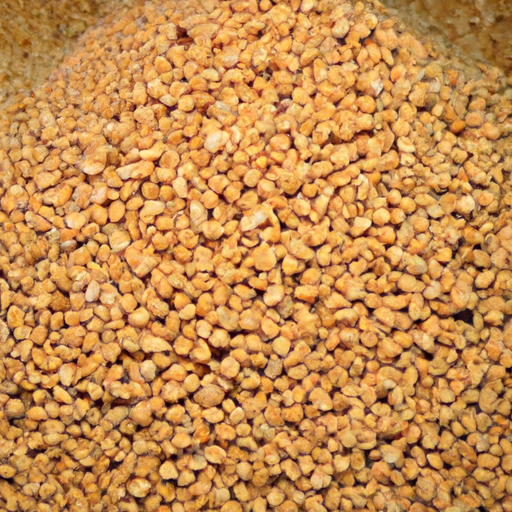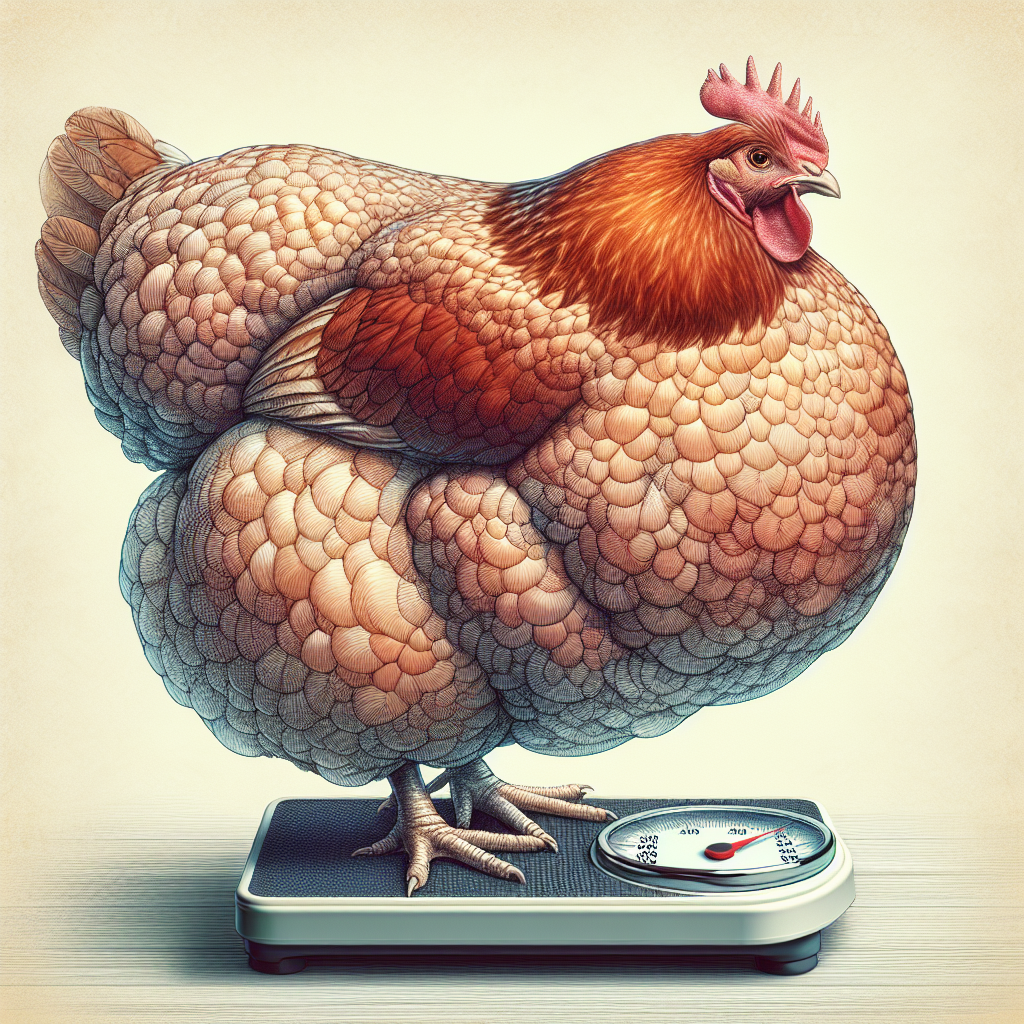Are you wondering about the best practices for changing or refreshing the feed for your beloved chicken flock? Well, fret not, because in this article, we will explore the ideal frequency for this important task. Ensuring the well-being and health of your chickens is crucial, and feeding them the right way is a significant aspect of that. So, if you’re curious to learn how often you should change or refresh the feed for your chicken flock, keep reading to discover the answer.
Importance of changing or refreshing chicken feed
Ensuring proper nutrition is essential for the health and well-being of your chicken flock. Like any living beings, chickens require a balanced diet to meet their nutritional needs. Changing or refreshing their feed helps ensure that they receive all the necessary vitamins, minerals, and nutrients required for optimal growth, development, and egg production.
One of the main reasons to change or refresh chicken feed is to prevent spoilage. Over time, feed can become stale or contaminated, posing a serious risk to the health of your flock. Regularly replacing the feed helps maintain freshness and reduce the chances of bacterial growth, mold, or infestation, which can negatively impact the chickens’ health.
Maintaining flock health is another crucial aspect of changing or refreshing chicken feed. By providing fresh and nutritionally balanced feed, you can help boost the immune system of your chickens, making them less susceptible to diseases. A healthy flock translates to happier chickens, higher egg production, and overall greater success in poultry farming.
Factors to consider when changing or refreshing chicken feed
Several factors should be taken into account when deciding to change or refresh chicken feed. These factors include the age and breed of the chickens, the current feed quality, environmental conditions, and the egg production goals you have set for your flock.
The age of the chickens plays a significant role in determining their nutritional needs. Chicks have different requirements than adult birds, and their feed should reflect that. Younger chickens need feed that supports their growth and development, while layers require a feed that supports egg production. Taking into consideration the specific nutritional needs at each stage ensures optimal health and performance.
The breed of your chickens can also impact their dietary requirements. Some breeds have specific dietary needs or sensitivities that must be taken into account when selecting or changing their feed. Researching the specific breeds you have in your flock can help guide you in choosing the right feed for them.
Current feed quality is an important consideration. If the feed you are currently using is of poor quality, changing or refreshing the feed becomes imperative. Low-quality feed can lead to nutrient deficiencies and negatively impact the health and productivity of your flock. Evaluating the current feed quality can help determine if a change is needed.
Environmental conditions can also influence the nutritional needs of your flock. For instance, extreme temperatures or high humidity can affect feed consumption and nutrient utilization. Understanding the environmental factors that may impact your chickens’ well-being can guide you in determining the appropriate feed and frequency of changes.
Lastly, your egg production goals should be considered when changing or refreshing feed. If you are aiming for high egg production, providing a feed specifically formulated for layers is crucial. This feed is designed to provide the necessary nutrients to support egg development and production. Aligning your feed choices with your production goals can optimize the performance of your flock.
Determining the frequency of changing or refreshing feed
Determining the frequency of changing or refreshing chicken feed can be a complex process that requires careful monitoring and consideration. While there is no one-size-fits-all answer, several methods can help guide you in finding the optimal frequency for your flock.
Consulting a poultry nutritionist is an excellent starting point. These experts have extensive knowledge and experience in formulating balanced diets for chickens. A nutritionist can assess the specific needs of your flock and provide recommendations on how often you should change or refresh their feed based on factors such as breed, age, and production goals.
It is also essential to follow the manufacturer’s recommendations for the feed you are using. Feed manufacturers provide guidelines and instructions on how often the feed should be changed or refreshed. These recommendations are typically based on extensive research and testing specific to their products.
Monitoring feed consumption is an effective way to assess if changing or refreshing the feed is needed. If your chickens are not consuming the feed as usual, it may indicate that a change is required. A sudden decrease in feed consumption can be a sign of nutritional deficiencies or issues with feed quality. Conversely, if your chickens are consuming the feed excessively, it may indicate that the current feed is not meeting their nutritional needs.
Assessing flock health and behavior is another indicator of when to change or refresh feed. Regularly checking your chickens for signs of illness, such as weight loss, reduced activity, or abnormal behavior, can help identify any potential issues that may require a feed change. Healthy chickens exhibit vibrant feathers, good weight gain, and active behavior.
Frequency for different stages of the flock
The frequency of changing or refreshing feed varies depending on the stage of the flock. Below are some guidelines for different stages of chicken growth and development:
Chicks (0-6 weeks)
For chicks, changing or refreshing feed is typically done more frequently compared to older birds. Chicks have rapid growth rates and require a diet that supports their development. As a general rule, feed for chicks should be changed every two to three weeks to ensure they receive the necessary nutrients.
Grower birds (6-20 weeks)
During the grower stage, chickens are transitioning from chicks to young adults. The feed provided during this stage should facilitate healthy growth and development. Changing or refreshing the feed every four to six weeks is generally recommended to meet their evolving nutritional needs.
Layers (20 weeks and older)
Layers, which are chickens specifically bred for egg production, have unique nutritional requirements. The feed provided to layers should support optimal egg production and overall health. Changing or refreshing the feed every eight to twelve weeks is typically recommended for layers.
Broilers (meat birds)
Broilers, chickens raised for meat production, have different dietary requirements compared to layers or other types of chickens. They require a higher protein content in their feed to support rapid growth. Changing or refreshing the feed for broilers usually occurs every four to six weeks.
Best practices for changing or refreshing chicken feed
When changing or refreshing chicken feed, it is important to follow certain best practices to ensure a smooth transition and maintain the health and well-being of your flock.
One of the best practices is to implement a gradual transition between feeds. Abruptly switching feeds can upset the chickens’ digestive systems, leading to digestive issues or reduced feed consumption. Gradually mixing the new feed with the old feed over a period of 7-10 days allows the birds to adjust to the new feed without any adverse effects.
Avoiding overfeeding or underfeeding is also essential. While it may be tempting to provide excess feed to ensure your flock is well-fed, doing so can lead to obesity, diminished egg production, and other health issues. On the other hand, underfeeding can result in nutrient deficiencies and poor growth or development. Providing the appropriate quantity of feed based on your chickens’ needs is crucial for their overall health.
Clean and fresh water should always be available to your flock. Proper hydration is essential for digestion, nutrient absorption, and overall health. When changing or refreshing feed, remember to also clean and refill their water containers to ensure a constant supply of clean water.
Maintaining proper storage of feed is crucial for preserving its freshness and quality. Feed should be stored in a cool, dry, and well-ventilated area. Exposure to moisture and high temperatures can lead to mold growth or nutrient deterioration. Using airtight containers and regularly rotating your feed stock can further help prolong its freshness and prevent spoilage.
Additional considerations for optimal feed freshness
In addition to changing or refreshing feed, there are several additional considerations to ensure optimal feed freshness and quality for your chicken flock.
Avoid storing feed for extended periods. Over time, feed can lose its nutritional value, especially if stored for long periods. Purchasing feed in quantities that can be consumed within a reasonable timeframe helps ensure that your chickens receive the maximum nutritional benefits from the feed.
Store feed in airtight containers to protect it from moisture, pests, and air exposure. These elements can lead to spoilage, mold growth, and nutrient deterioration. Airtight containers, such as buckets with secure lids or metal bins, can help maintain the quality and freshness of the feed.
Keep feed cool and dry. Heat and moisture can accelerate the degradation process of feed. Storing feed in a cool, dry area helps prevent nutrient loss and preserves its quality. Avoid placing feed near areas prone to condensation or direct sunlight.
Regularly rotate your feed stock. Rotation ensures that older feed is used before it loses its nutritional value. By consuming the oldest feed first, you can prevent waste and maintain the overall freshness of the feed you provide to your flock.
Signs that indicate the need to change or refresh feed
There are several signs that indicate the need to change or refresh feed for your chicken flock. Monitoring these signs can help you identify potential issues and take appropriate action to maintain the health and well-being of your chickens.
Unusual weight loss or gain in your chickens can indicate nutritional imbalances or deficiencies. If you notice sudden changes in weight that cannot be attributed to other factors, it may be a sign that the current feed is not providing the necessary nutrients.
Reduced egg production can also signal the need for a feed change. If your laying hens are producing fewer eggs than usual or if the quality of the eggs declines, it could indicate that the current feed is lacking essential nutrients required for optimal egg production.
Diarrhea or consistency changes in droppings can indicate digestive issues. If you notice watery or unusually colored droppings, it may be a sign that the current feed is causing digestive upset. Changing or refreshing the feed can help restore normal digestion and improve droppings’ consistency.
Lack of interest in feed is another sign that a change may be needed. If your chickens show disinterest or reduced appetite for the feed, it could indicate that the current feed is unpalatable or lacking in essential nutrients. Providing a fresh feed option can help stimulate appetite and ensure proper nutrition.
Spoiled or foul-smelling feed is an obvious indicator that it needs to be changed or refreshed. If you notice any signs of mold growth, unusual odors, or visible signs of contamination, it is essential to discard the feed immediately to prevent adverse health effects on your flock.
Potential consequences of infrequent feed changing or refreshing
Failing to change or refresh chicken feed frequently enough can have various negative consequences for your flock’s health and well-being. Some of the potential consequences include:
Nutritional deficiencies can occur when chickens do not receive a balanced and varied diet. Infrequent feed changes can lead to inadequate nutrient intake, resulting in deficiencies that can manifest as poor growth, feather abnormalities, reduced egg production, or compromised immune function.
Increased risk of disease can occur as a result of a weakened immune system in chickens on an inadequate or unbalanced diet. Nutritional deficiencies can make chickens more susceptible to various diseases, increasing the likelihood of outbreaks within the flock.
Reduced immune function can result from poor nutrition, leading to an increased susceptibility to infections and diseases. Chickens with compromised immune systems are more likely to fall ill and may have prolonged recovery times.
Poor growth or development can occur when chickens do not receive the appropriate nutrients to support their growth. This can manifest as stunted growth, skeletal abnormalities, and overall poor physical development.
Adverse effects on egg quality are another consequence of infrequent feed changes. Improper nutrition can result in eggs with thinner shells, reduced yolk quality, or decreased overall egg production. These issues can negatively impact the marketability and profitability of your poultry operation.
Conclusion
Changing or refreshing chicken feed is vital for ensuring proper nutrition, preventing spoilage, and maintaining the health of your flock. Factors such as age, breed, current feed quality, environmental conditions, and egg production goals should be considered when deciding on the frequency of feed changes. Following best practices, such as gradual transitions, proper storage, and monitoring flock health, can help optimize the benefits of changing feed. By being attentive to your chickens’ nutritional needs and providing them with fresh, balanced feed, you can promote their overall health, vitality, and productivity.




